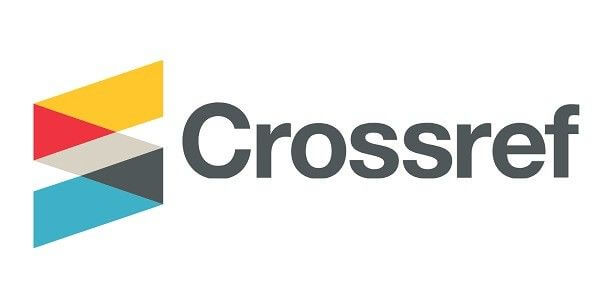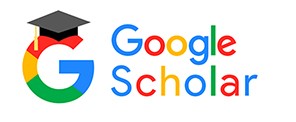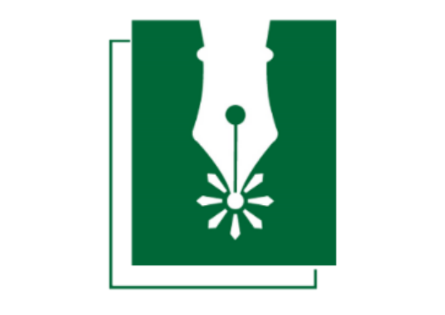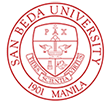Sustainability Reporting of Leading Global Universities in Asia, Europe, and USA
Keywords:
sustainable development, governance, environmental impact, sustainability reporting, triple bottom lineAbstract
Sustainable development as a concept is a significant landmark in the environmental theory because it hypothesizes on how society itself should be organized, and not merely on why certain environmental safeguards should be embraced or how they can be best applied. Our study determined the sustainability reporting of selected leading global universities in Asia, Europe, and the USA. Using the descriptive and comparative research designs, fifteen higher educational institutions from leading global universities with business schools and institutional sustainability development programs were used as sample cases. Based on the universities’ published Sustainability Reports, several patterns of sustainability reporting practices appeared to be being used. Results revealed that all the sampled universities in Asia, Europe, and USA publish their Stand-Alone Sustainability Reports annually, as well as publish parts of their sustainability performance in their Annual Reports at the end of every academic year. These reports are made available in their websites year-round. Findings also showed that in terms of reporting framework, the universally recognized Global Reporting Initiative is predominantly used by universities in Asia and Europe, followed by the Environmental Management System certifiable under ISO 14001 standards. USA universities, however, use a combination of standards, some not formal, but patterned it after the models such as the UN Global Standards, Corporate Knights, International Sustainability Campus Network/GULF Framework, and People and Planet Green League. Among the four priority concerns on sustainability reporting, environmental indicators obtained the highest average frequency; followed by governance, social, and economic indicators among the three regions, led by Europe and US universities. Overall, the level of sustainability disclosure is high in all the four indicators, and it is highest among European universities, followed by US universities, and then by Asian universities. We recommend that Philippine universities benchmark their sustainability reporting practices in the manner by which leading global universities practice them.
References
Blessing, L. (2009). The changing tole of universities in the knowledge. In The knowledge triangle shaping the future of Europe: Summary report from the conference (pp.19-21) Göteborg, Sweden: Högskoleverket (Swedish National Agency for Higher Education).
Carayannis, E., Barth, T., & Campbell, D. (2012). The Quintuple Helix innovation model: global warming as a challenge and driver for innovation. Journal of Innovation and Entrepreneurship, 1(1), 2. https://doi.org/10.1186/2192-5372-1-2
Commission on Higher Education (2014). Handbook on Institutional Sustainability Assessment, Philippines. Retrieved from https://ched.gov.ph/programs-and-projects/
Commission on Higher Education (2012). Policies, standards and guidelines on outcomes-based education and typology-based Quality Assurance System for Philippine Higher Education Institutions (Commission on Higher Education Memorandum Order 46, Series 2012). Retrieved from https://ched.gov.ph/programs-and-projects/
Commission of the European Communities. (2006). Delivering on the modernisation agenda for universities: Education, research and innovation. Communication from the commission to the council and the European Parliament. COM(2006) 208 final, 10 May. Brussels: European Union.
COPERNICUS Alliance. (2012). Rio +20 people’s sustainability treaty on higher education. Retrieved from https://www.iucn.org/content/rio20-peoples-sustainabilitytreaty-higher-education
Elkington, J. (2018, June 25). 25 years ago, I coined the phrase “triple bottom line.” Here’s why it’s time to rethink it. Harvard Business Review. Retrieved from https://hbr.org/2018/06/25-years-ago-i-coined-the-phrase-triple-bottom-line-heres-whyim-giving-up-on-it.
Ercoskun, O. (2005). Sustainable city plans against development plans. Journal of Science, 18(3). Retrieved from https://www.gujs.gazi.edu.tr/articleview.
Flodström, A. (2009). The knowledge triangle shaping the future of Europe – Conference Conclusions. In The knowledge triangle shaping the future of Europe: Summary report from the conference (pp.7-9) Göteborg, Sweden: Högskoleverket (Swedish National Agency for Higher Education).
Global Reporting Initiative (GRI) (2013a). G4 sustainability reporting guidelines: Reporting principles and standard disclosures. Retrieved from https://www.globalreporting.org/
Holmberg, J. (2014). Transformative learning and leadership for a sustainable future: Challenge Lab at Chalmers University of Technology. In P. B. Corcoran, B. P. Hollingshead, H. Lotz-Sisitka, A. E. J. Wals, & J. P. Weakland (Eds.), Intergenerational learning and transformative leadership for sustainable futures (pp. 91–102). The Netherlands: Wageningen Academic Publishers. Retrieved from https://doi.org/10.3920/978-90-8686-802-5_4
Kolukisa, A. & Ugurlu, N. (2019). The importance of sustainable development in the field of education introduction. Research Gate. Retrieved from https://www.researchgate.net/publication/265030253.
Lappalainen, P., & Markkula, M. (Eds.). (2013). The knowledge triangle: Re-inventing the future. Finland: European Society for Engineering Education (SEFI), Aalto University, & Universitat Politecnica de Valencia.
Loh, L., Thao, N.T.P., Sim, I., Thomas, T., & Yu, W. (2016). Sustainability reporting in ASEAN: State of progress in Indonesia, Malaysia, Singapore and Thailand 2015. Singapore: ASEAN CSR Network.
Mendoza, D. and Terpous, K. (2014). Sustainability reporting in universities [Blue Paper Report]. Sweden: Chalmers-Innovationskontor VAST. Retrieved from https://innovationskontor.chalmers.se/sites/innovationskontoret.cms.chalmers.se/files/BURR-1.0-2014.pdf
Saunders, M., Lewis, P., & Thornhill, A. (2015). Research methods for business students (7th Ed.), Harlow, UK: Pearson Education Ltd.
Schruumanns, M. (2009). In The knowledge triangle shaping the future of Europe: Summary report from the conference (pp. 15-16) Göteborg, Sweden: Högskoleverket (Swedish National Agency for Higher Education).
Sorlin, S. (2009). How universities can take on increasing societal demands and remain powerhouses of intellectual freedom. In The knowledge triangle shaping the future of Europe: Summary report from the conference (pp.24-30) Göteborg, Sweden: Högskoleverket (Swedish National Agency for Higher Education).
Taylor, J. R. (2002). Conceptual approaches v: Concepts and domains. In A. D. Cruse, F. Hundsnurscher, M. Job, & P. R. Lutzeier (Eds.), Lexikologie - Lexicology. An international handbook on the nature and structure of words and vocabularies, Vol. 1 (pp. 296-303). Berlin and New York: Walter de Gruyter. Retrieved from https://www.academia.edu/6098913/Taylor_2002_Concepts_and_domains
United Nations Educational Scientific and Cultural Organization (UNESCO). (2005). UN Decade of Education for Sustainable Development 2005 - 2014. Retrieved from https://unesdoc.unesco.org/ark:/48223/pf0000141629
Vitalis, V. (2003). Sustainable Development. Keynote Paper presented to the Research School for the Socio-Economic and Natural Sciences of the Environment (SENSE) Summer Symposium 19-20 June 2003, Amsterdam, Netherlands. Organisation de Coopération et de Développement Economiques.
World Commission on Environment and Development / Brundtland Commission (1987). Report of the World Commission on Environment and Development: Our common future. Oxford: Oxford University Press.
- PDF | 199
- Abstract Views | 315
Published
How to Cite
Issue
Section
Copyright (c) 2023 Divina Edralin, Ronald Pastrana

This work is licensed under a Creative Commons Attribution-NonCommercial-NoDerivatives 4.0 International License.











